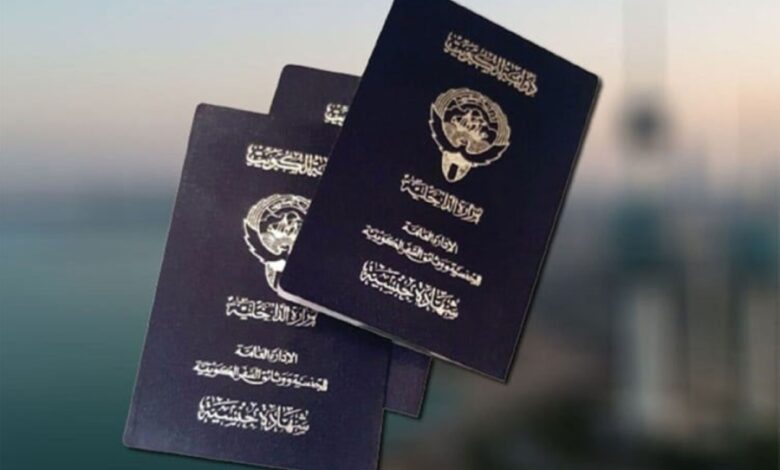A nation betrayed – nearly 1,000 cases of fraudulent Kuwaiti citizenship uncovered
A Kuwaiti identity crisis -- shocking forgery scandal; Kuwaiti father, citizens, and legacy files exploited for decades; fraud, and deception inside Kuwait’s largest nationality forgery investigation; from 16 children to 1,000 illegally registered citizens

A story stranger than fiction has shaken Kuwait, a tale so twisted that even the most imaginative novelists would not be able to invent it. The scandal lays bare a reality of deception, greed, and betrayal that has penetrated the heart of Kuwait’s national identity.
At the center of the storm is a Kuwaiti father whose citizenship file listed 33 children — only 16 of whom were real. The remaining 17 were fabricated, added in exchange for money. Investigators discovered that these 17 forgers had set off a chain reaction, linking dozens of additional individuals to the file. In total, nearly 1,000 people obtained citizenship illegally, draining public resources and undermining trust in the system.
The father’s confession years earlier seemed almost casual — “16 of them are my children … the rest are not.” Yet the implications were profound. The Supreme Nationality Committee moved swiftly, revoking the citizenship of 13 forgers, including two Syrians added in 2016-2017, confirming the father’s claims through DNA testing.
Despite intense parliamentary pressure in 2016 to halt the process, authorities pressed on. DNA samples were collected and preserved, forming the foundation for later investigations, reports Al-Rai daily.
From January to August of this year, 11 additional individuals lost their citizenship, with four forgers still under review. The 17 initial forgers included 15 Gulf nationals and two Syrians, highlighting the regional complexity of the scheme.
The numbers revealed by investigators are staggering. One individual was linked to 222 people, another to 142, and a third to 132. With the final four cases pending, authorities estimate that the total number of fraudulent citizenships could reach approximately 1,000. Every revocation has been backed by DNA evidence and official documentation.
Adding another layer of complexity, is a deceased Kuwaiti sheep trader’s file came under scrutiny. Though he had obtained citizenship legitimately, his file contained forged entries: two Iraqi employees and three children from his Iraqi wife’s previous marriage were falsely registered as his own.
The DNA testing confirmed that four of the children were genuinely related, while three were not, adding 263 individuals to the tally of forgeries.
The investigation also uncovered a fugitive Kuwaiti citizen who had added two Syrians to his file. Sentenced in absentia to seven years in prison, DNA testing later proved that his supposed siblings were unrelated.
The man had fabricated the citizenship of himself, his five children, and the two Syrians, and all 36 people linked to his file had their citizenship revoked.
The scandal reaches back decades. In one case, siblings discovered that their father had added a name to the file of a deceased brother from the 1970s.
The added individual had received little benefit, only a civil ID and one passport. Authorities plan to review the file, and any grievance will require a DNA test to validate the individual’s lineage.
Through this vast, intricate investigation, Kuwaiti authorities have demonstrated extraordinary perseverance. They faced challenges ranging from entangled lineages to individuals hiding abroad, yet DNA testing and meticulous record-keeping allowed them to uncover the full scope of the fraud.
The revelations expose not just the audacity of the forgers, but also systemic vulnerabilities. The cases span decades, exploiting gaps in record-keeping, oversight, and verification. They are a stark reminder of how trust can be manipulated for profit, leaving a nation to grapple with the consequences.
The work of the Nationality Investigation Department and the Supreme Nationality Committee has been central to restoring integrity. Every case resolved, every citizenship revoked, is a testament to the authorities’ commitment to protecting the Kuwaiti identity and safeguarding public resources.
Ultimately, this saga is a cautionary tale of greed, deception, and resilience. It is a story of how a single file, manipulated for personal gain, can ripple across generations, affecting thousands. Yet it is also a story of justice, persistence, and the enduring strength of Kuwait’s institutions in upholding the truth.
Follow The Times Kuwait on X, Instagram and Facebook for the latest news updates












